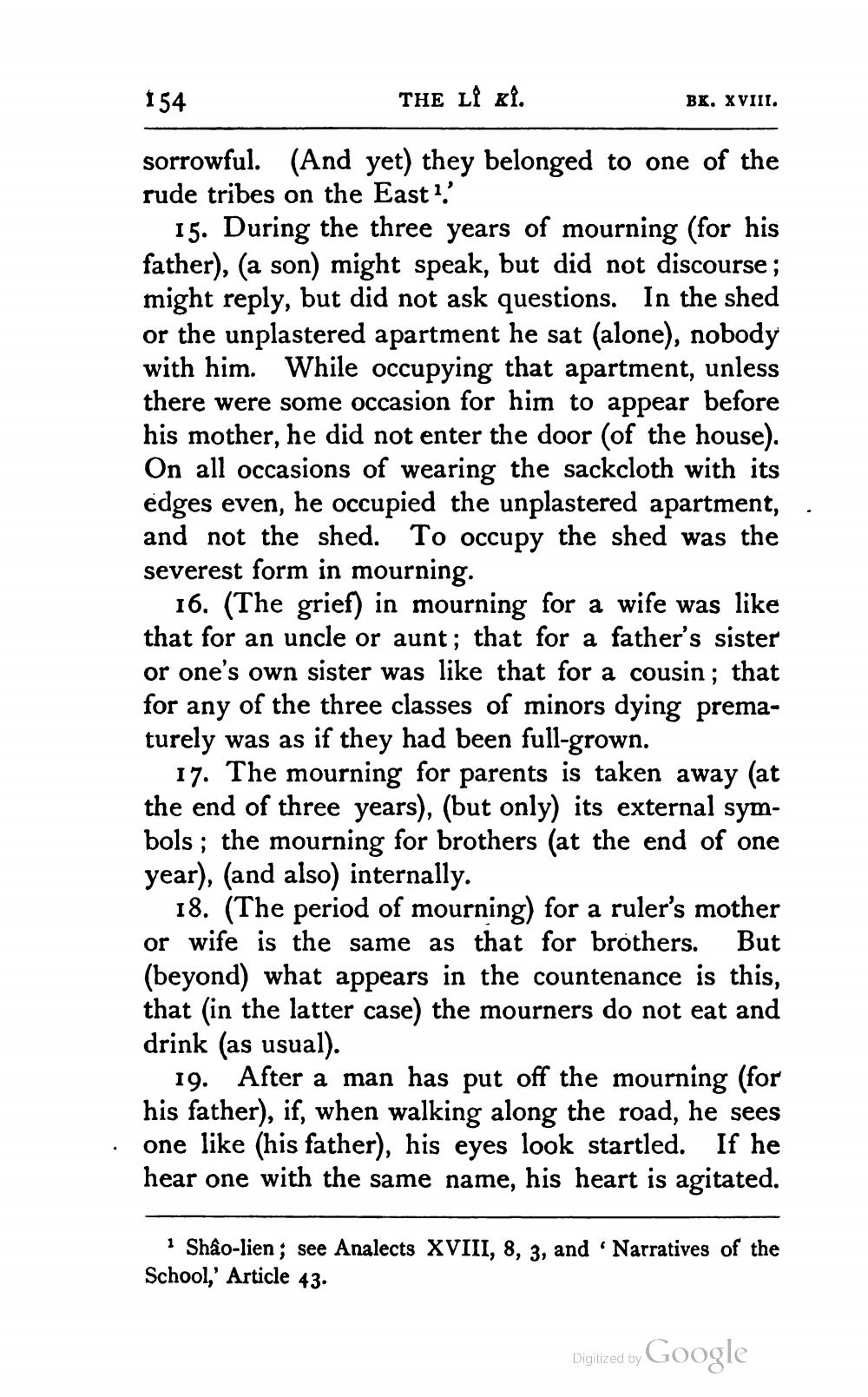________________
154
THE LÎ ki.
BK. XVIII.
sorrowful. (And yet) they belonged to one of the rude tribes on the East?!
15. During the three years of mourning (for his father), (a son) might speak, but did not discourse; might reply, but did not ask questions. In the shed or the unplastered apartment he sat (alone), nobody with him. While occupying that apartment, unless there were some occasion for him to appear before his mother, he did not enter the door (of the house). On all occasions of wearing the sackcloth with its edges even, he occupied the unplastered apartment, and not the shed. To occupy the shed was the severest form in mourning.
16. (The grief) in mourning for a wife was like that for an uncle or aunt; that for a father's sister or one's own sister was like that for a cousin; that for any of the three classes of minors dying prematurely was as if they had been full-grown.
17. The mourning for parents is taken away (at the end of three years), (but only) its external symbols; the mourning for brothers (at the end of one year), (and also) internally.
18. (The period of mourning) for a ruler's mother or wife is the same as that for brothers. But (beyond) what appears in the countenance is this, that (in the latter case) the mourners do not eat and drink (as usual).
19. After a man has put off the mourning (for his father), if, when walking along the road, he sees one like (his father), his eyes look startled. If he hear one with the same name, his heart is agitated.
Shâo-lien; see Analects XVIII, 8, 3, and · Narratives of the School,' Article 43.
Digitized by Google




